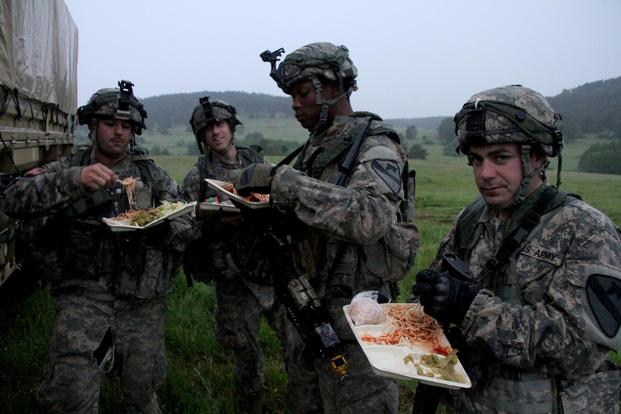Ever wondered why an enlisted person makes approximately $120 more in Base Allowance for Subsistence (BAS) each month than an officer does. Don't officers always make more money than enlisted folks?
Actually, no. BAS is one of the few times that enlisted personnel make more than their officer counterparts. And the reason why? Basically, because that's the way it's always been.
Enlisted personnel have always received higher BAS than officers. Historically, the military provided enlisted personnel with meals or a cash allowance to purchase food, but it didn't do that for officers. Sometimes, officers were given a subsistence allowance; sometimes, they were expected to shell out for their own meals out of their regular pay, which was much higher than enlisted pay.
Enlisted BAS has historically been intended to cover the full cost of meals for the service member; officer BAS has not.
Long ago, officers were pulled from the upper classes and bought their commissions or came from a well-off family and could afford to buy their own meals. Often, officers even had their own cooks follow them into battle.
Enlisted ranks, on the other hand, usually came from lower socio-economic groups and were provided meals as part of their overall meager compensation for military service. Historically, enlisted personnel performed more physical labor than officers and needed bigger meals to keep up their strength. Officers rode horses into battle while the enlisted masses marched for days or hauled carts carrying supplies and ammunition. On ships, officers ate separately from enlisted sailors and were generally exempt from physical labor such as scrubbing decks or climbing masts.
Throughout history, great military leaders have understood that a well-nourished military wins more battles than a hungry one, a fact noted by Napoleon who said, "An army marches on its stomach."
Our historical pay charts show that in 1949 officers got $42 a month in BAS while enlisted got $77.
The long-standing difference became law in 1962 as part of 37 U.S. Code § 402. That law specifies how annual BAS increases are determined, saying that officer and enlisted BAS rates will increase each year based on "the monthly cost of a liberal food plan for a male in the U.S. who is between 20 and 50 years of age."
So, the historical answer is that enlisted people work harder and need to eat more while they make less money. That's the way it's always been.
Keep Up With Military Pay Updates
Military pay benefits are constantly changing. Make sure you're up-to-date with everything you've earned. Subscribe to Military.com to receive updates on all of your military pay and benefits, delivered directly to your inbox.












